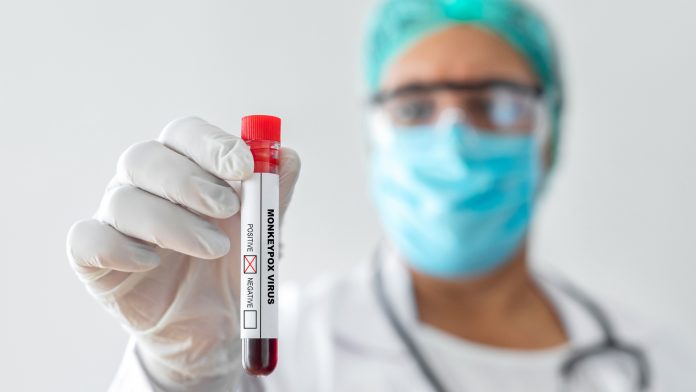
The UK Health Security Agency (UKHSA) has revealed that there are now over 100 confirmed monkeypox cases in the UK.
The latest data from the UKHSA has identified that there is now a total of 106 monkeypox cases in the UK, with 101 infections diagnosed in England, three in Scotland, one in Wales, and one in Northern Ireland. Although the risk of catching the disease remains low, the UKHSA is warning the UK population to stay vigilant, as monkeypox cases have sharply risen since the first confirmed infection on 7 May.
What is monkeypox?
Monkeypox is a zoonotic viral disease first discovered in the Democratic Republic of the Congo in 1970 and is predominantly prevalent in Central and West African countries. Transmission of the virus is rare and is usually passed on due to close contact with an infected patient through contact with lesions, body fluids, or respiratory droplets. However, the virus can be transmitted by an infected animal or contaminated materials such as bed sheets.
Monkeypox is a self-limiting disease, meaning it rarely requires treatment to resolve its symptoms, which include a fever, rash, swollen lymph nodes, headache, chills, exhaustion, and muscle ache. Symptoms of monkeypox usually persist for around two to four weeks.
The monkeypox outbreak
Despite usually being contained in African countries, monkeypox cases have recently popped up all over the world, with infections now confirmed in Australia, the US, Canada, Spain, Portugal, and now 106 in the UK.
The UKHSA is asking the public to be alert for any new rashes or lesions on any part of their body, which would appear like spots, ulcers, or blisters. This advice applies to everyone; however, due to most monkeypox cases so far being confirmed among men who are gay, bisexual, and men who have sex with men, the UKHSA is asking that these people are aware of the symptoms, especially if they have recently had a new sexual partner. If you develop a rash or lesions, you should contact a sexual health clinic immediately.
Dr Susan Hopkins, the Chief Medical Adviser of the UKHSA, said: “We are continuing to promptly identify further monkeypox cases in England through our extensive surveillance and contact tracing networks, our vigilant NHS services, and thanks to people coming forward with symptoms.
“We are asking people to look out for new spots, ulcers, or blisters on any part of their body. If anyone suspects they might have these, particularly if they have recently had a new sexual partner, they should limit their contact with others and contact NHS 111 or their local sexual health service as soon as possible, though please phone ahead before attending in person.”
Controlling transmission
To mitigate the spread of monkeypox, UKHSA health protection teams are contacting people who are considered to be high-risk contacts of confirmed cases and advising individuals who have been risk-assessed to isolate themselves at home for up to 21 days. The UKHSA has also acquired more than 20,000 doses of the Imvanex smallpox vaccine, which is offered to close contacts of those diagnosed with the virus to reduce the risk of symptomatic infection and severe illness.
























